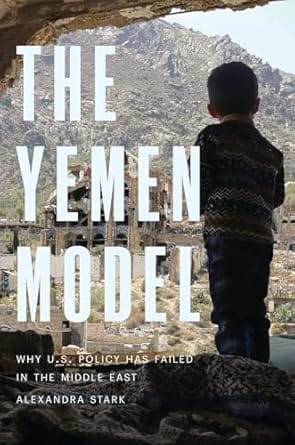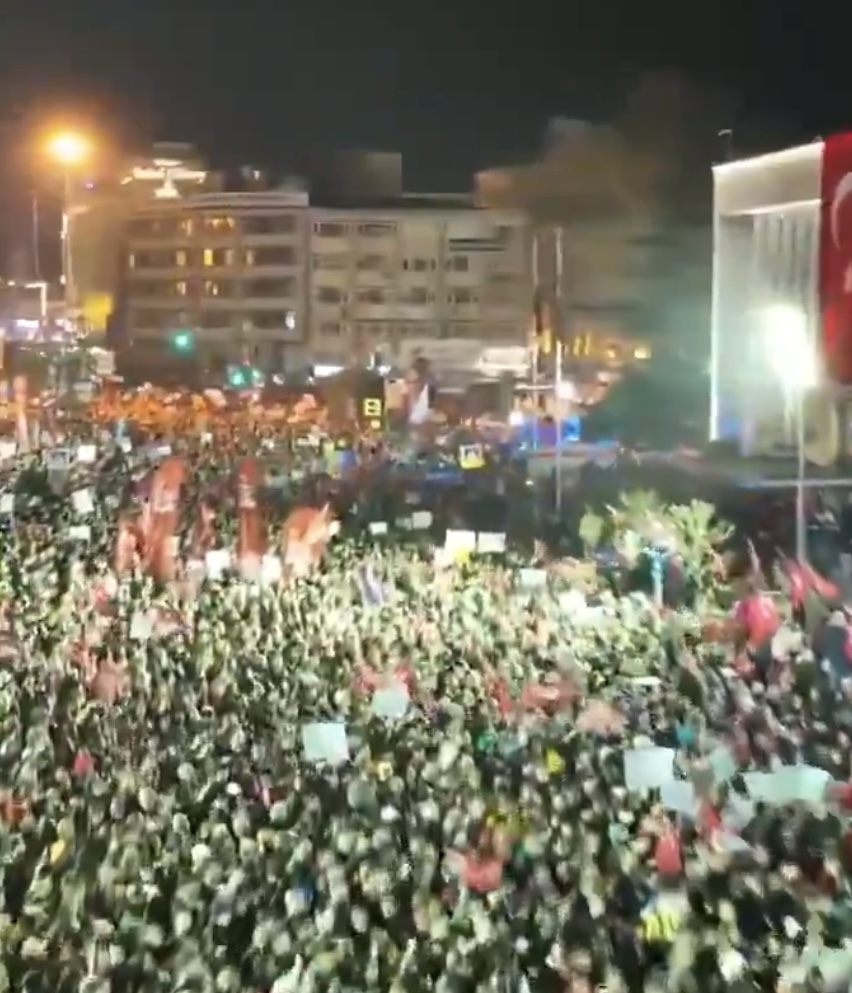The Yemen Model (Extreme Stupidity Era)
Plus why I'm not renewing my APSA membership or attending the 2025 conference.

Last year, Alexandra Stark published an important book about America’s long, frustrating and failed approach to Yemen called The Yemen Model. It captured the infuriating pattern of failure rooted in pathologies of the policy process and broader American approach spanning multiple administrations. It shouldn’t have surprised anyone when the Trump administration launched a wave of airstrikes in Yemen last week — America has been bombing Yemen, or supporting allies as they bombed Yemen, more or less continuously for decades, at tremendous human cost while consistently strengthening its alleged adversaries. (Way back in the early 1960s, President John F Kennedy famously admitted in the midst of a policy discussion about the Middle East that he didn’t even know where Yemen was.)
In the 2000s, the Bush administration supported then-President Ali Abdullah Saleh’s wars with the Houthis in exchange for his cooperation in the “Global War on Terror” — which, in Yemen, largely meant drone strikes against suspected al-Qaeda targets… sometimes American citizens like Anwar al-Awlaki, sometimes completely innocent wedding parties, and occasionally actual militants. After years of those efforts, both Al-Qaeda in the Arabia Peninsula and the Houthis were significantly stronger. The Obama administration continued and expanded the drone strikes, and in 2015 agreed to support the ill-fated Saudi-UAE intervention against the Houthis which produced almost indescribable human catastrophe and left the Houthis stronger than before the intervention while driving them closer to Iran (it also involved UAE support for AQAP in the south, but that’s another story). With varying points of emphasis, Trump and Biden continued the pattern of episodic military strikes and sanctions…. despite Biden’s explicitly campaigning against the war - one of so, so many Middle East policy promises he quickly broke on taking office. Again and again, American policy in Yemen harms Yemeni civilians and strengthens the targeted adversaries.
The latest iteration of pointless and counterproductive American bombing of Yemen came with a particularly special layer of stupidity. As everyone has by now no doubt heard, the White House principals somehow added Atlantic Monthly editor Jeffery Goldberg to the group Signal chat where they were planning the attack, including very specific operational details from Secretary of Defense Pete Hesgeth — an exceptional breach of operational security, a clear effort to avoid using official communications channels to avoid complying with federal law, and just unspeakably stupid. In other words, another day at the office for the Trumps. I’m sure that Jared Kushner and Mohammed bin Salman, who reportedly communicated regularly over WhatsApp in similar violation of federal law during the first Trump term, had a good laugh about it. The messages themselves offer a fascinating glimpse into policy thinking, such as it is, in the administration. JD Vance apparently opposed the strike, but for the wrong reason — he thought the Europeans, who depend more on Red Sea shipping than the US, should handle it, as part of his general preference to destroy the foundations of American global leadership.
This should become a great scandal, and I hope it does. But I also hope that at some point, there is a willingness for a reckoning with the far greater scandal of an American policy towards Yemen — both its own military strikes and its support for Saudi Arabia and the UAE in their blockades and military campaigns — which has produced such catastrophic human and environmental destruction without advancing any real interests and almost always producing the opposite of the intended outcomes. That would require it not just being about Trump, which is hard these days. But it would perhaps be far more productive for thinking through which parts of the rapidly disappearing old order are actually worth saving.
Three important things going on in and about the Middle East:
(1) Lawsuits. I’m extremely proud of the Middle East Studies Association for joining the AAUP and the Knight First Amendment Institute in suing the Trump administration for deporting and threatening students and faculty for engaging in lawful and constitutionally protected political speech. As MESA President (and my close colleague) Asli Bali explained: “The Middle East Studies Association joined this case because the threats and actions taken against noncitizen scholars and students have chilled their ability to engage in speech and association in ways that harm our entire field of study. This issue cuts to the core of our mission as a scholarly association—to facilitate the free exchange of ideas. It is incumbent upon us to support the interests of our members and stand up for the speech rights of all of our colleagues and students.”
I’m embarrassed that the American Political Science Association failed to join this lawsuit, or to say anything at all really about the full-scale assault on higher education (which presumably includes political science). I’m a former member of the APSA Council and the founding chair of its MENA Politics Section. But APSA’s failure will absolutely affect my thinking about participating in its conferences and other activities in the future. It has issues some good statements in the past, including one in June 2024 about the repressive response to protests, but virtually nothing in 2025. (See list here: https://apsanet.org/about/apsa-public-statements-and-letters/). I’ve already decided to not renew my APSA membership and to not attend the 2025 Annual Conference in Vancouver, in part because of the APSA’s utter failure to meet this moment. I encourage others who feel that the *American Political Science Association* should have something to say about the Trump administration’s systematic assault on higher education and the foundations of the American state to do the same until its approach changes.
(I’m also skipping APSA 2025 in Vancouver partly because of concerns about international travel — anyone who works on the Middle East, even US citizens, should be VERY careful about crossing the border and should absolutely be following information security best practices… I hear stories. Lots of stories, none of them good. Sarah Parkinson wrote this good primer for us almost a decade ago; a lot has changed since then — almost always for the worse.)
(2) Turkey: Speaking of resistance to autocratization, it’s been very impressive to see the Turkish opposition rally in a sustained and highly visible way for a full week (thus far) against Erdogan’s appalling arrest of his leading political rival, Istanbul Mayor Ekrem Imamoglu (and stripping of his university degrees.. what is this, Columbia University?). The images of mass rallies across the country in protest against this egregious assault on the remnants of Turkish democracy — an assault with clear corrolaries with what the US may soon be facing under Trump — are inspirational, and a reminder of how vital and vibrant Turkish civil society remains despite long years of autocratic repression, institutional pressures, and efforts to impose one party rule. It’s far to soon to know if the protests can succeed, or what success would even mean in this context — harsh crackdowns are underway, Erdogan remains in a strong position, and there are few institutional channels to effect change — but the very act of resistance is a statement with both local and global implications right now. I’m putting together a set of recommended readings and social media follows on the Turkish protests this week — if you’d like to contribute, or be on it, drop me a line.

(3) Gaza. The official death toll from Israel’s war on Gaza has now passed 50,000. That’s an attention-grabbing number which briefly returned the once again hotly raging war to the headlines. But it’s not really that significant as a milestone. The actual death toll is without question far higher than 50,000. The official numbers don’t count the bodies buried under the rubble or the people who just disappeared. And that’s not even to include the deaths from infectious disease and malnutrition and untreated water caused by Israel’s blockade and systematic destruction of the physical infrastructure. Everyone quibbling over numbers — which are almost certainly an undercount, not an overcount — or snidely commenting about the “Hamas controlled health ministry” should look more seriously at the public health scholarship on accounting for wartime deaths… and also look more seriously at the deep darkness in their souls.
Abu Aardvark's MENA Academy is a reader-supported publication. To receive new posts and support my work, consider becoming a free or paid subscriber.



